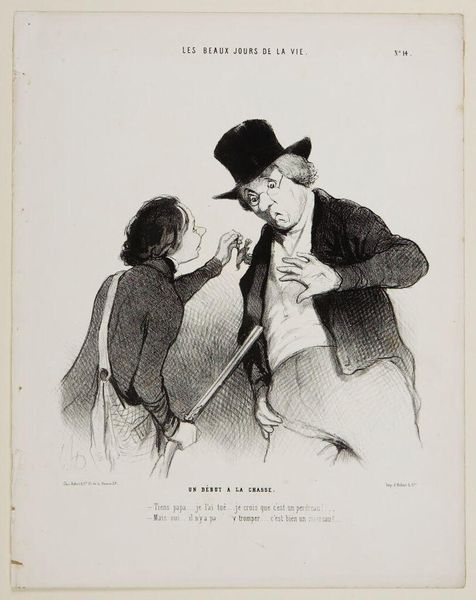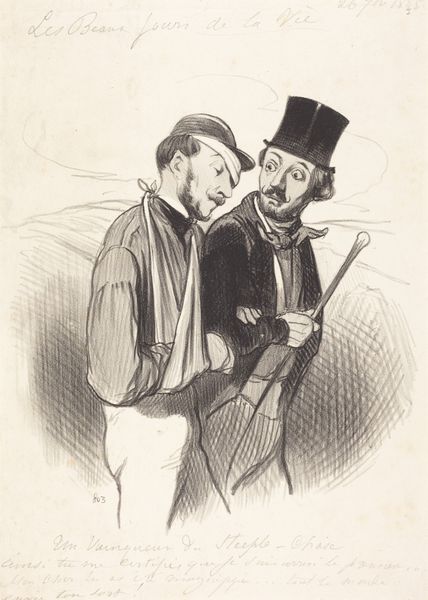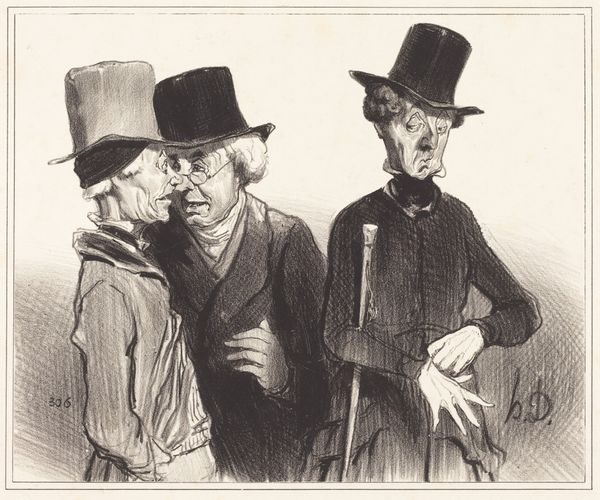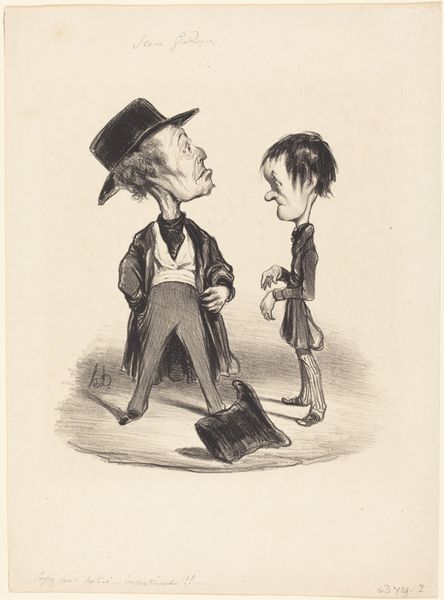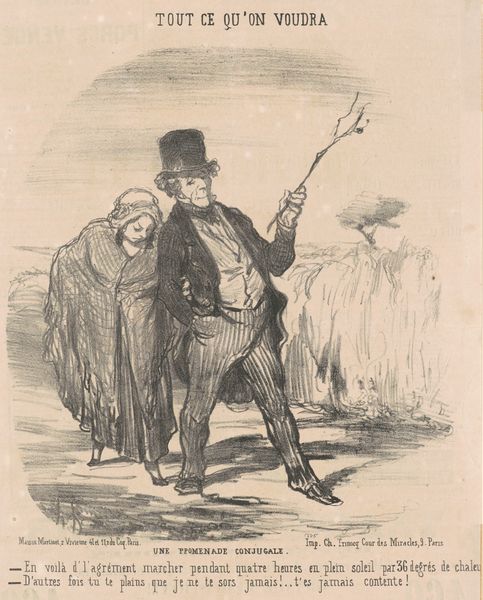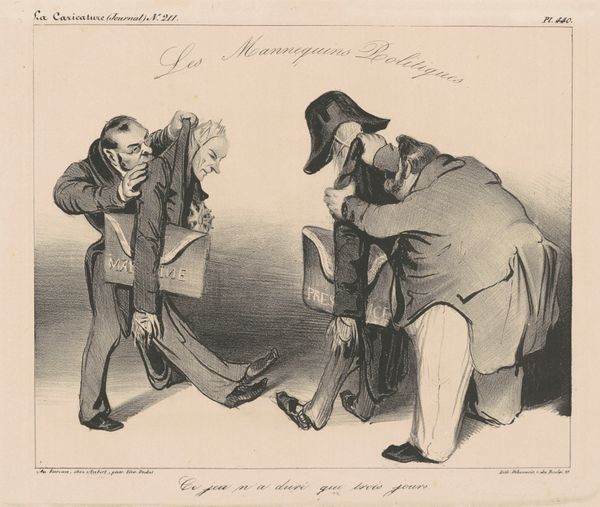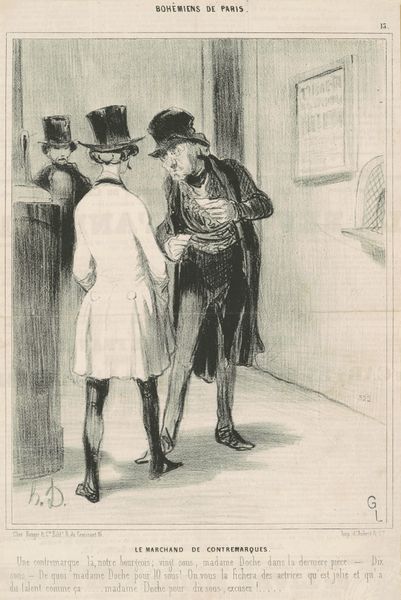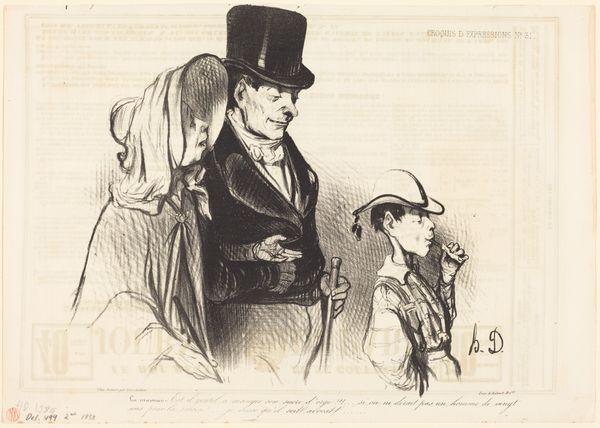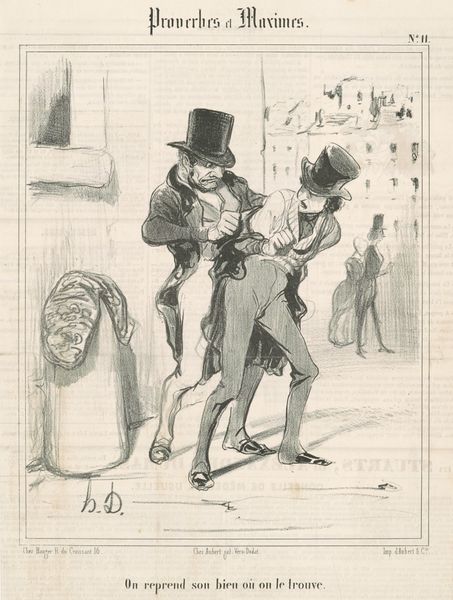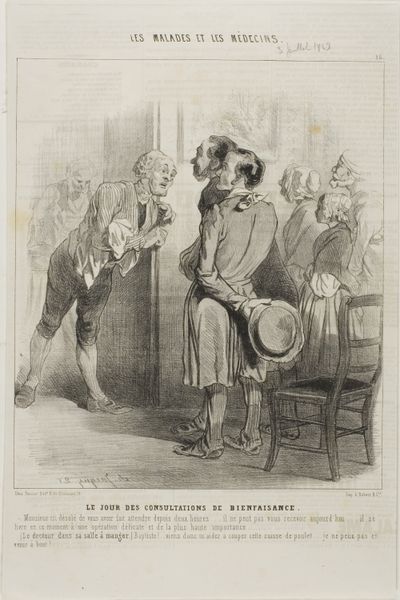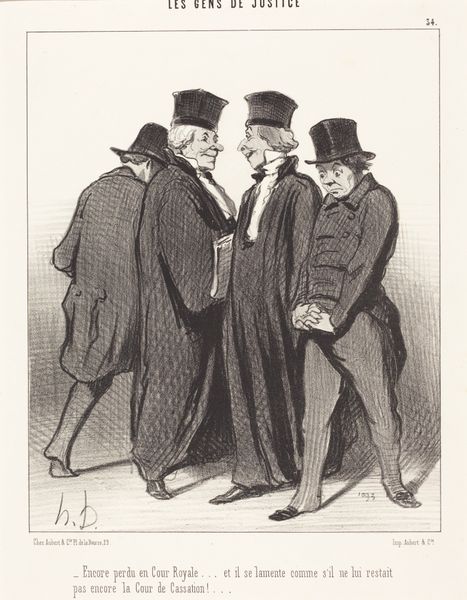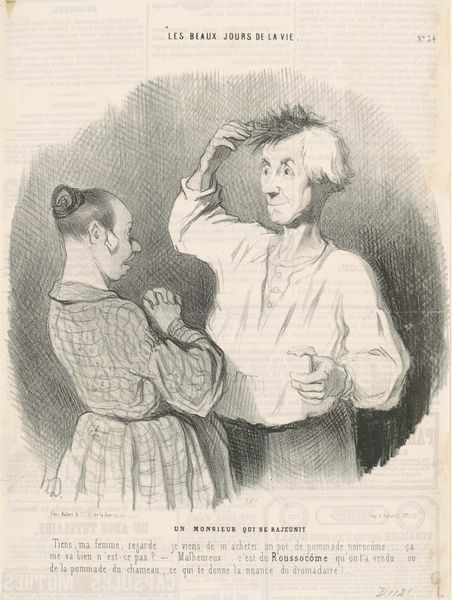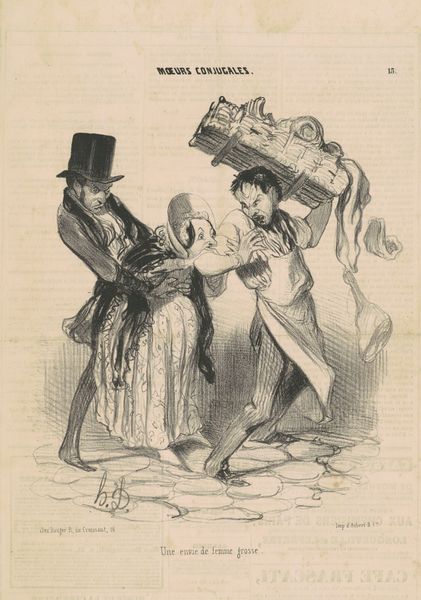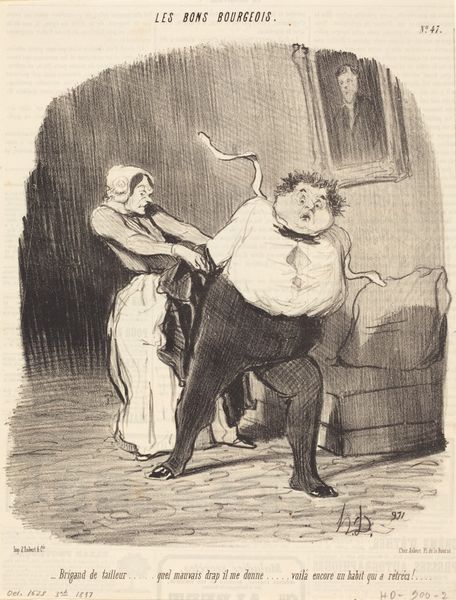
drawing, lithograph, print
#
portrait
#
pencil drawn
#
drawing
#
imaginative character sketch
#
light pencil work
#
quirky sketch
#
lithograph
# print
#
caricature
#
pencil sketch
#
personal sketchbook
#
idea generation sketch
#
pencil drawing
#
romanticism
#
sketchbook drawing
#
pencil work
#
genre-painting
#
realism
Copyright: National Gallery of Art: CC0 1.0
Curator: Before us we have "Un Début a la chasse", or "A Debut Hunt," a lithograph by Honoré Daumier, created in 1844. Editor: It’s striking. The expressions are wonderfully exaggerated. A kind of bewildered exasperation seems to emanate from the older figure, doesn't it? Curator: Indeed. Daumier masterfully uses line and shadow to convey emotion. Notice how the nervous hatching around the man's eyes contrasts with the smoother, simpler rendering of the younger boy. The lines contribute significantly to the overall character. Editor: Given the social climate of 1840s France, with its rising bourgeoisie and social tensions, I wonder, who are these two characters intended to represent? The young hunter surely implies societal expectations, maybe concerning inheritance. And the elder's reaction seems loaded with commentary, perhaps on anxieties surrounding social mobility. Curator: A valid interpretation. Looking at it purely from a formal perspective, the composition creates a visual dialogue. The placement of the two figures, their gestures—the boy's offering, the man's recoil—form a narrative in themselves. Semiotically, the rifle acts not merely as a hunting tool, but as a marker of masculine identity. Editor: And there’s perhaps some sardonic humor on Daumier’s part. The elder seems almost repulsed, doesn't he? This could signify his position, the status he must now pass to another, and his complete loathing of the changing hierarchy and values. Curator: A provocative point. What appears to be a somewhat banal genre scene becomes rich with societal commentary under historical scrutiny. Yet, its artistic achievement remains in how effectively it delivers those complex ideas. The lithographic process, while yielding many copies, allowed Daumier to broadcast social observations. Editor: Precisely! Ultimately, an analysis that only looks inward at Daumier’s linework—however beautiful it is— would do the work a disservice if it overlooked the society it portrays. What’s your concluding thought about its impact? Curator: The interplay of line and societal implication allows "Un Début a la chasse" to transcend its simple narrative. Editor: I agree. It serves both as social document and a pointed visual metaphor—offering layered perspectives.
Comments
No comments
Be the first to comment and join the conversation on the ultimate creative platform.
